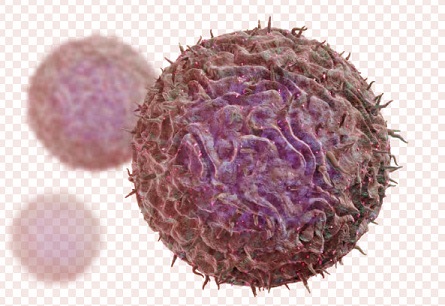Nikhil Prasad Fact checked by:Thailand Medical News Team Nov 13, 2024 1 year, 3 months, 15 hours, 36 minutes ago
Medical News: T helper (TH) cells are crucial defenders in our immune system, helping other immune cells function effectively. When the body encounters pathogens - such as viruses or bacteria - these cells can become activated and differentiate into specific types: TH1 cells, which fight against viruses and intracellular pathogens, or TH2 cells, which tackle extracellular threats like bacteria and parasites. The precise way T cells decide to become TH1 or TH2, though, has puzzled scientists. Is it the immune system alone driving this decision, or does the infected tissue itself play a guiding role?
 Neuropeptides Role in Directing Immune Response Through T Cell Differentiation
Neuropeptides Role in Directing Immune Response Through T Cell Differentiation
Recent research has uncovered that certain tissues, like virally infected neurons, indeed play an essential part in shaping T cell responses. The study reveals that infected neurons actively promote TH1 cell development while holding back TH2 cell production during viral infections. This
Medical News report shows that neuroimmune communication - essentially a conversation between the nervous and immune systems - is key to determining the specific role T cells will play in fighting infection.
Neuropeptides: The Body’s Communicators in T Cell Differentiation
The researchers, hailing from institutions including Brigham and Women’s Hospital, Mass General Hospital, Broad Institute of MIT and Harvard Medical School, have discovered that neurons communicate with the immune system through molecules known as neuropeptides. Neuropeptides interact with receptors on T cells, sending signals that influence the T cells’ fate. This communication pathway is especially critical during viral infections, as it helps the body mount an effective defense against the invading virus.
The study’s findings highlight a unique aspect of neuroimmune communication, establishing a direct connection between infected tissue and the differentiation of T cell subtypes. By focusing on how specific neuropeptides guide immune cell development, the researchers have opened up new possibilities for enhancing immune responses through targeted interventions in the neuroimmune circuits.
Investigating the Inner Workings of T Cell Development
To dive deeper into the molecular mechanisms that guide T cells’ fate, the researchers utilized a variety of advanced genetic and cell analysis techniques. Using single-cell RNA sequencing (scRNA-seq), they were able to track gene expression patterns over time in different immune cells. They further employed CRISPR technology to pinpoint which genetic regulators are involved in steering T cells towards TH1 or TH2 pathways.
Through these analyses, the researchers identified a neuropeptide receptor called RAMP3, which plays a central role in determining how T cells differentiate. This receptor is essential in allowing neurons to influence T cells effectively, shaping the immune response in line with the needs of the body during viral infections.
Neurons’ Control O
ver T Cell Fate
The study reveals that neuropeptides released by neurons interact with T cell receptors like RAMP3 to drive TH1 cell development while inhibiting TH2 cell formation. This mechanism helps the immune system maintain the right balance between TH1 and TH2 cells, ensuring that the body responds appropriately to different types of pathogens. A disruption in this balance could potentially weaken the immune system’s ability to combat infections effectively.
Interestingly, the researchers found that during viral infections, the neuropeptide CGRP (calcitonin gene-related peptide) interacts specifically with RAMP3 on T cells. This interaction activates downstream signaling pathways in the T cells, promoting the expression of genes that drive TH1 cell differentiation. By favoring TH1 cells, the body can mount a more effective antiviral response. In essence, neurons are influencing T cell behavior to optimize immune defenses, making neuropeptide signaling a vital part of the immune response.
Potential Therapeutic Applications
One significant implication of this study is the potential for new treatments targeting neuroimmune pathways. For example, an imbalance between TH1 and TH2 cells has been observed in patients with severe COVID-19, where an excess of TH2 differentiation is linked to higher mortality rates. By targeting neuroimmune circuits to promote TH1 over TH2 cells, researchers may be able to develop therapies that enhance immune responses in critically ill patients.
Beyond COVID-19, these findings could also have implications for other diseases, such as cancer and autoimmune disorders. Therapies designed to modulate neuropeptide signaling pathways could one day offer patients more tailored and effective treatments, particularly those with conditions where the immune response needs fine-tuning to avoid excessive inflammation or to mount a stronger defense against malignancies.
Concluding Thoughts on Neuroimmune Communication
The study’s findings underscore the intricate connections between the nervous and immune systems, revealing how neurons actively participate in immune regulation. This discovery of a “neuroimmune circuit” shows that, during an acute viral infection, neurons release neuropeptides that act on T cells to guide their differentiation into TH1 cells. By facilitating this response, the body can better control infections and avoid immune imbalances that might otherwise hinder recovery.
Researchers believe that further exploration of neuroimmune circuits could lead to innovative treatments. Specifically, by understanding and manipulating the signals that guide T cell differentiation, there is potential to enhance immune responses in diseases where immunity is compromised. This discovery could open up new pathways to improve human health and resilience against infections.
The study findings were published in the peer-reviewed journal: Nature.
https://www.nature.com/articles/s41586-024-08049-w
For the latest on T Cell research, keep on logging to Thailand
Medical News.
Read Also:
https://www.thailandmedical.news/news/russian-study-finds-that-immune-regulating-t-cell-subsets-show-delayed-recovery-for-a-year-following-acute-covid-19
https://www.thailandmedical.news/news/interferon-gamma-by-activated-cd4-t-cells-shown-to-inhibit-covid-19-variants-differently
